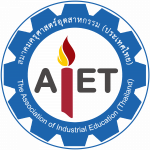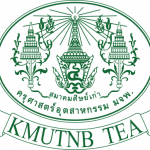Emerging Patterns A Comprehensive Look at latest news and the Forces Reshaping Global Dynamics.
- Emerging Patterns: A Comprehensive Look at latest news and the Forces Reshaping Global Dynamics.
- Geopolitical Realignment and Shifting Power Dynamics
- The Role of International Organizations
- Economic Transformations and Global Trade
- Supply Chain Resilience and Diversification
- Technological Innovations and Disruptive Forces
- The Ethical Implications of Artificial Intelligence
- Societal Shifts and Changing Values
Emerging Patterns: A Comprehensive Look at latest news and the Forces Reshaping Global Dynamics.
In an era defined by rapid change and interconnectedness, staying informed about the latest news is more critical than ever. Global events, political shifts, technological advancements, and economic trends all converge to create a complex and dynamic world. Understanding these forces requires a continuous process of learning and adaptation. This article delves into emerging patterns across various domains, analyzing the underlying drivers that are reshaping global dynamics and influencing the trajectory of our future.
The sheer volume of information available today can be overwhelming, making it challenging to discern signal from noise. However, by focusing on foundational trends and their potential implications, we can gain a clearer perspective on the challenges and opportunities that lie ahead. This exploration will cover political landscapes, economic indicators, technological innovations, and societal shifts, offering a comprehensive overview of the forces at play.
Geopolitical Realignment and Shifting Power Dynamics
The global political landscape is undergoing a significant transformation, with a marked shift in power dynamics. Traditional alliances are being re-evaluated, and new partnerships are emerging. This realignment is driven by a complex interplay of factors, including economic competition, ideological differences, and security concerns. The rise of emerging economies, particularly in Asia, is challenging the long-held dominance of Western powers, leading to a more multipolar world. This shift necessitates a re-evaluation of international institutions and governance structures to ensure stability and cooperation.
| Asia-Pacific | Increasing Chinese influence, territorial disputes | Heightened geopolitical tensions, potential for conflict |
| Europe | Rise of nationalist movements, Brexit’s consequences | Fragmentation of the European Union, economic uncertainty |
| Middle East | Ongoing conflicts, power struggles between regional actors | Regional instability, humanitarian crises |
| North America | Political polarization, trade disputes | Domestic discord, economic vulnerability |
The Role of International Organizations
International organizations, such as the United Nations, the World Trade Organization, and the International Monetary Fund, play a crucial role in navigating these complex geopolitical shifts. However, their effectiveness is often hampered by political gridlock and conflicting national interests. Reforming these institutions to enhance their responsiveness, transparency, and inclusivity is essential for addressing global challenges effectively. Strengthening multilateral cooperation is not merely a desirable goal, but a necessity for fostering a more peaceful and sustainable world. The need for innovative approaches to international governance, capable of adapting to rapidly changing circumstances, is paramount.
Recent developments have highlighted the limitations of existing structures, particularly in responding to crises like pandemics and climate change. A greater emphasis on preventive diplomacy, conflict resolution, and humanitarian assistance is crucial. Furthermore, fostering a more equitable distribution of power and resources within these organizations is vital for ensuring that the voices of all nations are heard and respected. The success of these endeavours requires a fundamental shift in mindset, prioritizing collective action over narrow national interests.
The increasing impact of non-state actors, such as multinational corporations and non-governmental organizations, also demands attention. These entities possess significant influence and resources, and their actions can have profound consequences for global affairs. Engaging with these actors in a constructive and transparent manner is crucial for harnessing their potential to address shared challenges. Strengthening regulatory frameworks and promoting corporate social responsibility are essential steps in ensuring that these actors operate in a manner that benefits society as a whole.
Economic Transformations and Global Trade
The global economy is experiencing a period of profound transformation, driven by technological innovation, shifting demographics, and evolving consumer preferences. The rise of the digital economy, the increasing importance of data as a strategic asset, and the growing demand for sustainable products and services are all reshaping the economic landscape. These transformations present both opportunities and challenges for businesses and policymakers alike. Adapting to these changes requires a focus on innovation, education, and workforce development.
- Digitalization of economies
- Growth of e-commerce
- Increasing automation
- Rise of the gig economy
- Focus on sustainable business practices
Supply Chain Resilience and Diversification
Recent disruptions to global supply chains, exacerbated by the pandemic and geopolitical tensions, have exposed the vulnerabilities of interconnected economic systems. Businesses are now seeking to enhance supply chain resilience by diversifying their sourcing, building inventory buffers, and investing in regional production capabilities. This trend is prompting a re-evaluation of traditional trade patterns and a greater emphasis on localized production. Governments are also playing a role in promoting supply chain resilience through policies that encourage domestic manufacturing and strengthen critical infrastructure. The move toward regionalization and friend-shoring is likely to continue, as countries prioritize security and stability in their economic relationships.
However, complete decoupling from global markets is neither feasible nor desirable. The benefits of international trade and investment remain significant, and a more balanced approach is needed. This involves fostering a more diversified and resilient trading system, reducing reliance on single suppliers, and promoting fair and equitable trade practices. Investing in infrastructure, improving logistics, and streamlining regulatory processes can enhance the efficiency and competitiveness of global supply chains.
Furthermore, the transition to a low-carbon economy presents both challenges and opportunities for global trade. Countries that embrace sustainable production methods and invest in green technologies will be well-positioned to thrive in the future. However, managing the social and economic impacts of this transition, particularly for workers in carbon-intensive industries, will require careful planning and proactive policies. International cooperation on climate change mitigation and adaptation is essential for ensuring a just and sustainable transition for all.
Technological Innovations and Disruptive Forces
Technological innovation is accelerating at an unprecedented pace, driving transformative changes across all sectors of the economy and society. Artificial intelligence, biotechnology, nanotechnology, and other emerging technologies have the potential to revolutionize industries, create new opportunities, and address some of the world’s most pressing challenges. However, these technologies also raise ethical, social, and economic concerns that must be addressed proactively. Ensuring that these technologies are developed and deployed responsibly is crucial for maximizing their benefits and minimizing their risks.
- Artificial Intelligence (AI)
- Biotechnology
- Nanotechnology
- Quantum Computing
- Blockchain Technology
The Ethical Implications of Artificial Intelligence
The rapid advancement of artificial intelligence (AI) raises a number of ethical concerns, including bias, fairness, transparency, and accountability. AI algorithms are trained on data, and if that data reflects existing biases, the algorithms will perpetuate and even amplify those biases. This can lead to discriminatory outcomes in areas such as hiring, lending, and criminal justice. Ensuring that AI systems are fair, transparent, and accountable requires careful attention to data quality, algorithm design, and oversight mechanisms. Furthermore, establishing clear ethical guidelines and regulations for the development and deployment of AI is essential. The responsible use of AI requires a multidisciplinary approach, involving experts from computer science, ethics, law, and social sciences.
The potential for AI to automate jobs also raises concerns about the future of work. While AI may create new jobs, it is likely to displace workers in certain industries. Preparing the workforce for these changes requires investments in education and training programs that focus on developing skills that are complementary to AI. Fostering a culture of lifelong learning and adaptability is crucial for navigating the evolving labor market. Exploring policies such as universal basic income or job guarantee programs may also be necessary to address the potential for widespread job displacement.
Moreover, the development of autonomous weapons systems raises profound ethical and security concerns. The prospect of machines making life-and-death decisions without human intervention is deeply unsettling. Establishing international norms and treaties to regulate the development and deployment of autonomous weapons systems is essential for preventing a dangerous arms race and ensuring human control over critical decisions.
Societal Shifts and Changing Values
Societal values and norms are undergoing a period of profound transformation, influenced by factors such as demographic shifts, globalization, and technological change. Traditional social structures are being challenged, and new forms of community and identity are emerging. These shifts have implications for everything from consumer behavior to political engagement. Understanding these changing dynamics is crucial for businesses, policymakers, and individuals alike.
| Aging Population | Increased life expectancy, declining birth rates | Strain on social security systems, healthcare demands |
| Urbanization | Migration from rural areas, economic opportunities | Overcrowding, infrastructure challenges |
| Increased Diversity | Globalization, migration | Cultural enrichment, social tensions |
| Rise of Individualism | Emphasis on personal autonomy, decline of traditional institutions | Social fragmentation, erosion of community bonds |
Adapting to these societal shifts requires a more inclusive and equitable approach to policymaking. Addressing issues such as income inequality, access to healthcare, and affordable housing is crucial for ensuring that all members of society have the opportunity to thrive. Fostering a sense of belonging and community is essential for mitigating the negative consequences of social fragmentation. The importance of social cohesion, civic engagement, and mutual respect cannot be overstated.



